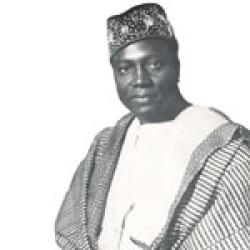
Published date
9 November 1952
References
Mali History. Encyclopedia of the Nations [online] Available at: nationsencyclopedia.com [Accessed 10 November 2009]| This Day in African History: 18 November. About.com [online] Available at: africanhistory.about.com [Accessed 10 November 2009]
Mali was once part of the Great Songhay Empire, but came under French rule in 1892. After almost seventy years of colonial rule, Mali was renamed the Sudanese Republic, gaining full autonomy and joining the French community in 1958. In 1960, it emerged as the independent Republic of Mali. A one party states was established under Modibo Keita. He withdrew from the French community and established an economy aligned along socialist lines. This caused economic decline, and Mali re-joined the French community in 1967. On 19 November 1968, Keita was overthrown in a bloodless military coup and was replaced by Lieutenant Moussa Traore. Continuing with economic reform, the new government was constantly challenged by internal strife. This was compounded by the Sahel Drought, in which around 100 000 people died of hunger. The government remained in the hands of the military, and relative calm was experienced until 1985, when a border dispute broke out with Burkino Faso. By the mid-1990's ethnic conflict broke out between the Tuareg people and Malian locals, in which the Tuareg were brutally crushed. In 1991, a number of anti-government riots broke out, and President Traore was arrested and replaced with a civilian government. Amadou Toure then emerged as the leader of a democratic Mali. Although Mali enjoys relative political stability, it is not able to sustain itself economically, with at least half of the population living under the poverty line.